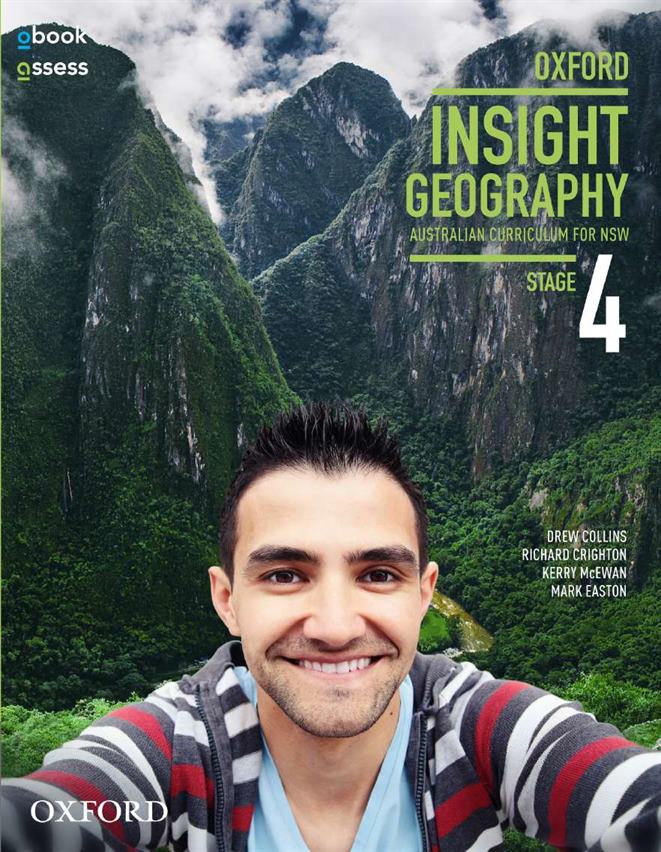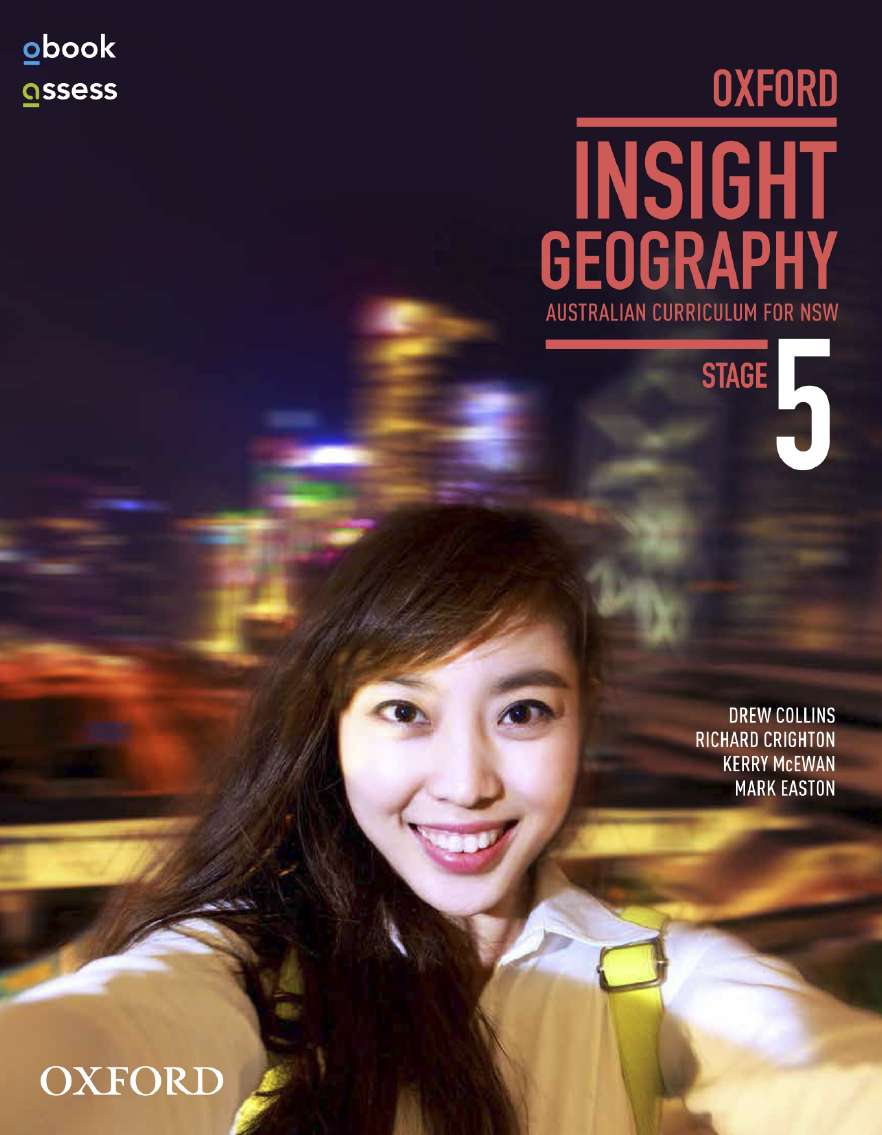Oxford Insight Geography AC for NSW Stage 4 obook/assess

Oxford Insight Geography AC for NSW Stage 4 obook/assess
|
ISBN: |
9780190304980 |
|
Binding: |
obook code (digital) |
|
Published: |
30 Jan 2017 |
|
Availability: |
Available
|
|
Series: |
$53.95 AUD
$61.99 NZD
Add To Cart Add To CartDescription
Oxford Insight Geography is supported by a range of engaging and relevant digital resources via obook assess.
With obook assess, students can:
- access interactive content such as videos and learning modules
- access a digital version of their Student book
- access work assigned by their teacher – reading, homework, tests, assignments
- use their cloud-based obook anywhere, anytime, on any device.
Oxford Insight Geography obook assess includes:
- engaging worksheets for every spread
- videos and video worksheets
- weblinks
- interactive flashcard glossary
- interactive activities
- interactive layered maps
- interactive, auto-correcting multiple-choice quizzes.
obook provides an interactive electronic version of the Student book in an easy-to-read format. It features multimedia links, interactive learning objects, videos, note-taking, highlighting and bookmarking tools, and live question blocks. obook is compatible with laptops, iPads, tablets and IWBs, and also offers page view (in flipbook format) that can be used offline.
assess is an indispensable online assessment tool. Explicitly mapped to the Australian Curriculum, it drives student progress through tailored instruction. Teachers can track the status of assignments, monitor progress with auto-marking assessments, or construct customised tests from the testbank using varied question levels and question types.
Contents
THE GEOGRAPHER'S TOOLKIT
GT.1 Geographical concepts
GT.2 Geographical inquiry skills
GT.3 Geographical tools
UNIT 1: LANDSCAPES AND LANDFORMS
1: The Earth’s changing landscapes and landforms
1.1 Why is there a diversity of landscapes and landforms on Earth?
1.2 What environmental and human processes form and transform landscapes and landforms?
2: Valuing, managing and protecting landscapes and landforms
2.1 Why do people value landscapes and landforms?
2.2 To what extent are landscapes and landforms sustainably managed and protected?
3: Landscape hazards
3.1 What impacts can landscape hazards have on communities and environments?
UNIT 2: PLACE AND LIVEABILITY
4: The places we live
4.1 Why do people’s perceptions of the liveability of places vary?
4.2 What effect does environmental quality and access to services have on people’s wellbeing?
5: Liveable places
5.1 How can strong community and social connectedness enhance the liveability of places?
5.2 What approaches can be used to improve the liveability of places?
UNIT 3: WATER IN THE WORLD
6: Water as a resource
6.1 Why does the spatial distribution of water resources vary globally and within countries?
6.2 How do natural and human processes influence the distribution and availability of water as a resource?
7: Valuing and managing water
7.1 What effect does the uneven distribution of water resources have on people, places and environments?
7.2 What approaches can be used to sustainably manage water resources and reduce water scarcity?
8: Investigating atmospheric and hydrological hazards
8.1 What impacts can water have on communities?
UNIT 4: INTERCONNECTIONS
9: Connecting people and places
9.1 How are people and places connected to other places?
9.2 What role does technology play in connecting people to people, goods, services and information in other places?
10: The effects of global connections
10.1 What are the consequences of a globally connected world for people and places?
10.2 Why are interconnections important for the future of places and environments?
Authors
Drew Collins is Head of Geography at The King’s School and has over 14 years' geography teaching experience in NSW and the United Kingdom.
Richard Crighton is Head of Geography at Knox Grammar School and has over 20 years' geography teaching experience. He is currently completing his Masters Degree in Education Leadership.
Kerry McEwan is Head Teacher HSIE at Barrenjoey High School and has over 25 years' geography teaching experience. Kerry has a Masters Degree in Education and is a GTANSW council member.
Mark Easton has taught Geography, History and English for over 20 years and during the last 15 years has been a contributing author to many geography, humanities and atlas titles. In 2010 he joined Oxford as a geography consultant to work on a range of titles and to support the use of these resources in the classroom. Mark is also the Head of the Humanities Department at St Margaret's School.



